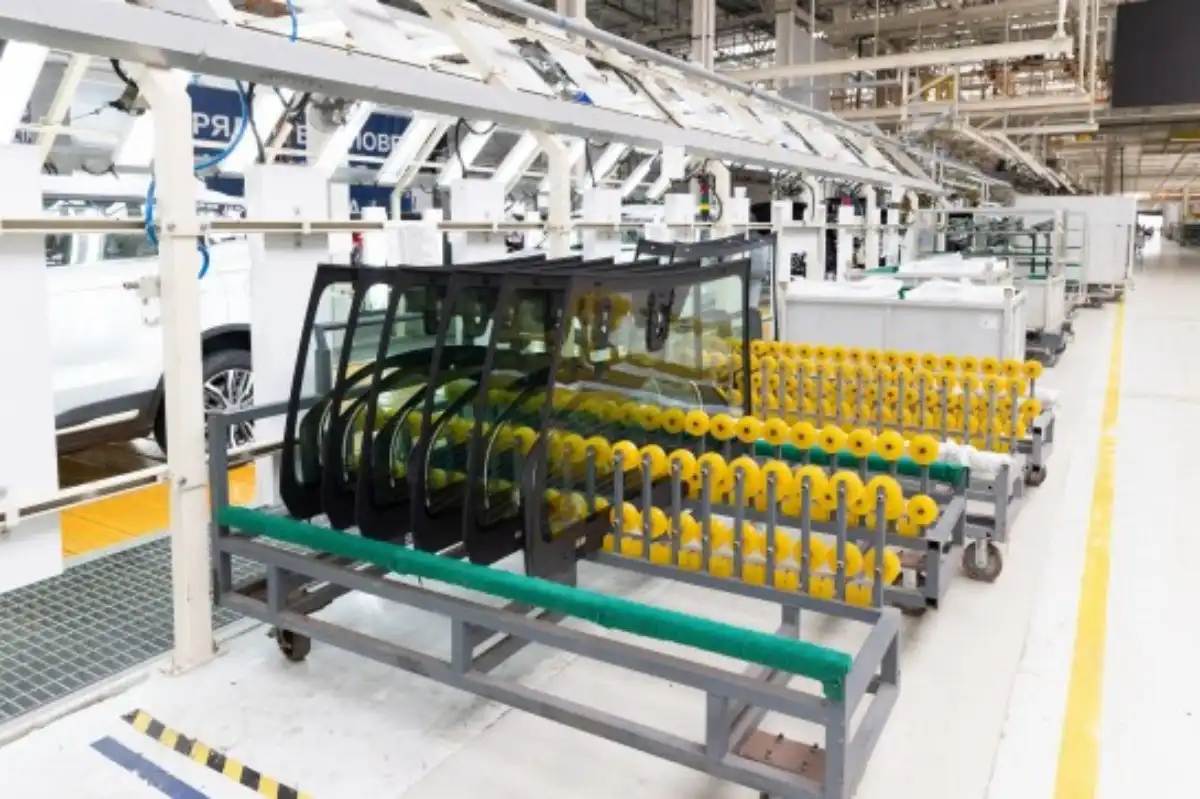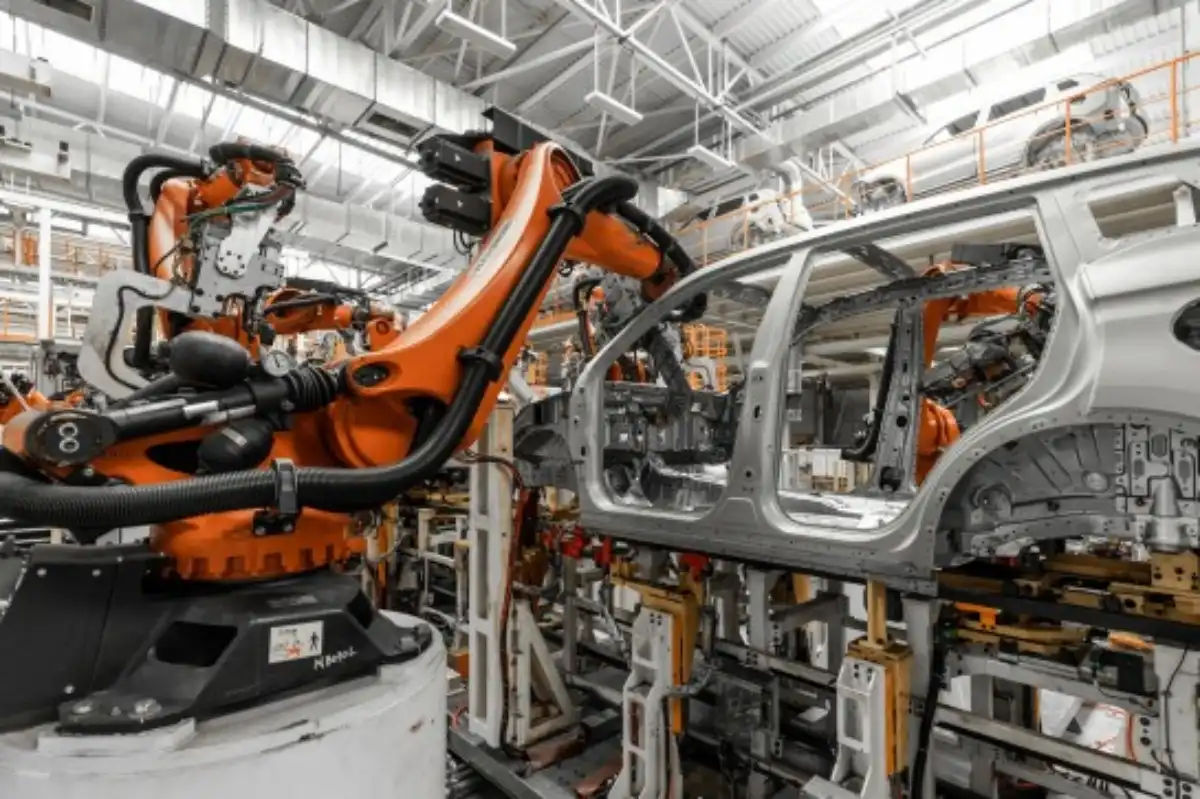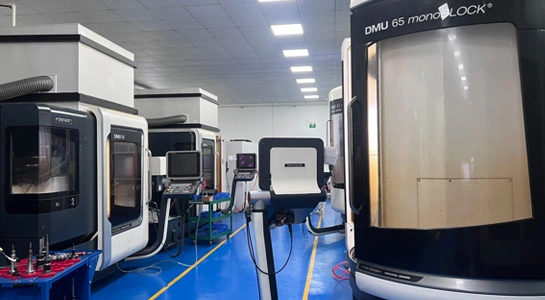Evaluating Supplier Expertise and Capabilities
Assessing Technical Proficiency
When choosing an automotive prototype parts supplier, it's essential to evaluate their technical proficiency. Look for suppliers with extensive experience in automotive prototyping and a deep understanding of industry standards. A capable supplier should be well-versed in various manufacturing processes, including CNC machining, rapid injection molding, and 3D printing technologies like SLA and SLS.
Consider the supplier's ability to work with a wide range of materials, both plastic and metal, as this versatility is crucial for automotive applications. Additionally, assess their expertise in handling complex geometries and tight tolerances, which are often required in automotive prototype parts.
To gauge a supplier's technical proficiency, ask for case studies or examples of past projects similar to yours. This will give you insight into their problem-solving abilities and their capacity to meet specific automotive industry requirements.

Evaluating Manufacturing Capabilities
The right automotive prototype parts supplier should have robust manufacturing capabilities to meet your project needs. Evaluate their production capacity, equipment, and facilities to ensure they can handle your project's scale and complexity.
Look for suppliers with a diverse range of manufacturing processes, such as:
- CNC machining for precise metal and plastic parts
- Rapid injection molding for quick production of plastic components
- Die casting for complex metal parts
- Vacuum casting for small-batch production
- Advanced 3D printing technologies for rapid prototyping
A supplier with comprehensive manufacturing capabilities can offer more flexibility and efficiency in producing your automotive prototype parts. They should also be able to suggest the most suitable manufacturing method based on your part design, material requirements, and production volume.
Assessing Quality Control Measures
Quality control is paramount in automotive prototype parts production. A reliable supplier should have robust quality management systems in place to ensure consistent part quality and adherence to specifications.
Inquire about the supplier's quality control processes, including:
- Inspection methods and equipment used
- Quality certifications (e.g., ISO 9001)
- Material testing capabilities
- Dimensional accuracy verification procedures
- Documentation and traceability practices
Ask about their approach to addressing quality issues and their commitment to continuous improvement. A supplier with stringent quality control measures will help minimize errors and ensure that your automotive prototype parts meet or exceed industry standards.
Considering Cost, Lead Time, and Customer Service
Analyzing Pricing Structures
While cost shouldn't be the sole determining factor, it's crucial to understand the pricing structures of potential automotive prototype parts suppliers. Request detailed quotes that break down costs for materials, labor, tooling, and any additional services.
Compare quotes from multiple suppliers, but be wary of significantly lower prices that may indicate compromised quality or hidden costs. Look for suppliers who offer transparent pricing and are willing to discuss cost-saving opportunities without sacrificing part quality.
Consider the long-term value rather than just the upfront costs. A supplier who can offer competitive pricing while maintaining high quality and reliability may prove more cost-effective in the long run, especially when factoring in potential revisions or production scaling.
Evaluating Lead Times and Delivery Reliability
In the fast-paced automotive industry, timely delivery of automotive prototype parts is crucial. Assess potential suppliers based on their ability to meet your project timelines and their track record of on-time deliveries.
Consider the following factors when evaluating lead times:
- Turnaround times for quotes and design feedback
- Production lead times for different manufacturing processes
- Capacity for rush orders or expedited services
- Ability to scale production as needed
Ask for references or case studies that demonstrate the supplier's reliability in meeting deadlines. A supplier with efficient processes and a commitment to timely delivery can help keep your automotive prototype project on schedule and prevent costly delays.
Assessing Customer Service and Communication
Effective communication and responsive customer service are vital when working with an automotive prototype parts supplier. Evaluate potential suppliers based on their communication skills, responsiveness, and willingness to collaborate closely with your team.
Look for suppliers who offer:
- Clear and prompt communication
- Dedicated project managers or points of contact
- Regular project updates and progress reports
- Flexibility in accommodating design changes or revisions
- Technical support and design advice
A supplier with excellent customer service can help streamline your prototyping process, address issues quickly, and contribute valuable insights to improve your automotive parts designs. Consider scheduling initial consultations or requesting sample projects to assess their communication style and level of engagement.
Evaluating Technological Capabilities and Innovation
Assessing Advanced Manufacturing Technologies
In the rapidly evolving automotive industry, it's crucial to partner with a prototype parts supplier that stays at the forefront of manufacturing technologies. Evaluate potential suppliers based on their investment in advanced manufacturing equipment and processes.
Look for suppliers who offer:
- Multi-axis CNC machining centers for complex part geometries
- Advanced 3D printing technologies for rapid prototyping
- Hybrid manufacturing capabilities combining additive and subtractive processes
- High-precision metrology equipment for quality control
- Automated production lines for efficient low-volume manufacturing
A supplier with cutting-edge technologies can offer faster turnaround times, higher precision, and more design flexibility for your automotive prototype parts. Additionally, they're more likely to be able to handle a wide range of materials and complex part designs.
Evaluating Design for Manufacturability (DFM) Capabilities
Design for Manufacturability (DFM) is a crucial aspect of efficient and cost-effective prototype parts production. A competent automotive prototype parts supplier should have strong DFM capabilities to help optimize your designs for manufacturing.
Assess potential suppliers based on their ability to:
- Provide constructive feedback on part designs
- Suggest design modifications to improve manufacturability
- Offer material recommendations based on part requirements
- Optimize designs for specific manufacturing processes
- Conduct virtual simulations to predict manufacturing outcomes
A supplier with robust DFM capabilities can help reduce production costs, improve part quality, and shorten lead times by identifying and addressing potential manufacturing issues early in the design process.
Considering Industry 4.0 and Smart Manufacturing Adoption
As the automotive industry moves towards greater digitalization and connectivity, it's beneficial to partner with a supplier that embraces Industry 4.0 and smart manufacturing principles. These advanced approaches can lead to improved efficiency, quality, and flexibility in prototype parts production.
Look for suppliers who have implemented or are actively adopting:
- Internet of Things (IoT) enabled production monitoring
- Data analytics for process optimization
- Digital twins for virtual prototyping and testing
- Artificial Intelligence (AI) for predictive maintenance and quality control
- Cloud-based collaboration tools for seamless communication
A supplier embracing these technologies is likely to be more adaptable, efficient, and capable of meeting the evolving needs of the automotive industry. They can offer valuable insights and data-driven decision-making throughout the prototyping process, potentially leading to better outcomes for your projects.
Conclusion
Selecting the right automotive prototype parts supplier is a critical decision that can significantly impact the success of your project. By carefully evaluating suppliers based on their expertise, manufacturing capabilities, quality control measures, pricing, lead times, customer service, and technological innovation, you can make an informed choice. Remember to prioritize suppliers who offer a balance of technical proficiency, cost-effectiveness, and collaborative approach. The ideal supplier will not only meet your current needs but also have the capacity to support your future automotive prototyping projects as they evolve and scale. Take the time to thoroughly assess potential suppliers, request samples or case studies, and don't hesitate to ask detailed questions about their processes and capabilities.

FAQs
1. What are the key factors to consider when choosing an automotive prototype parts supplier?
Key factors include technical expertise, manufacturing capabilities, quality control measures, pricing, lead times, customer service, and technological innovation.
2. How important is a supplier's experience in the automotive industry?
Industry experience is crucial as it ensures familiarity with automotive standards, regulations, and specific requirements for prototype parts.
3. Should I prioritize cost or quality when selecting a supplier?
While cost is important, quality should be the primary focus to ensure the success and reliability of your automotive prototype parts.
Expert Automotive Prototype Parts Supplier | BOEN
At BOEN Prototype, we specialize in high-quality prototyping and low-volume production for automotive parts. Our advanced manufacturing capabilities, including CNC machining, rapid injection molding, and 3D printing, ensure precision and efficiency. With our expertise in automotive prototyping and commitment to innovation, we deliver superior results for your projects. Contact us at contact@boenrapid.com to discuss your automotive prototype parts needs with our experienced team.
References
Smith, J. (2022). "Automotive Prototyping: Trends and Best Practices." Journal of Automotive Engineering, 45(3), 178-195.
Johnson, A. et al. (2021). "Supplier Selection Criteria in the Automotive Industry." International Journal of Supply Chain Management, 16(2), 89-104.
Brown, R. (2023). "The Impact of Industry 4.0 on Automotive Prototype Manufacturing." Automotive Technology Review, 58(4), 312-328.
Lee, S. and Park, K. (2022). "Quality Control Measures in Automotive Prototyping." Journal of Manufacturing Quality, 39(1), 45-62.
Wilson, M. (2023). "Cost-Effective Strategies in Automotive Prototype Parts Production." International Journal of Automotive Manufacturing, 27(3), 201-218.
Garcia, L. et al. (2021). "Advancements in 3D Printing Technologies for Automotive Prototyping." Rapid Prototyping Journal, 33(2), 156-173.





